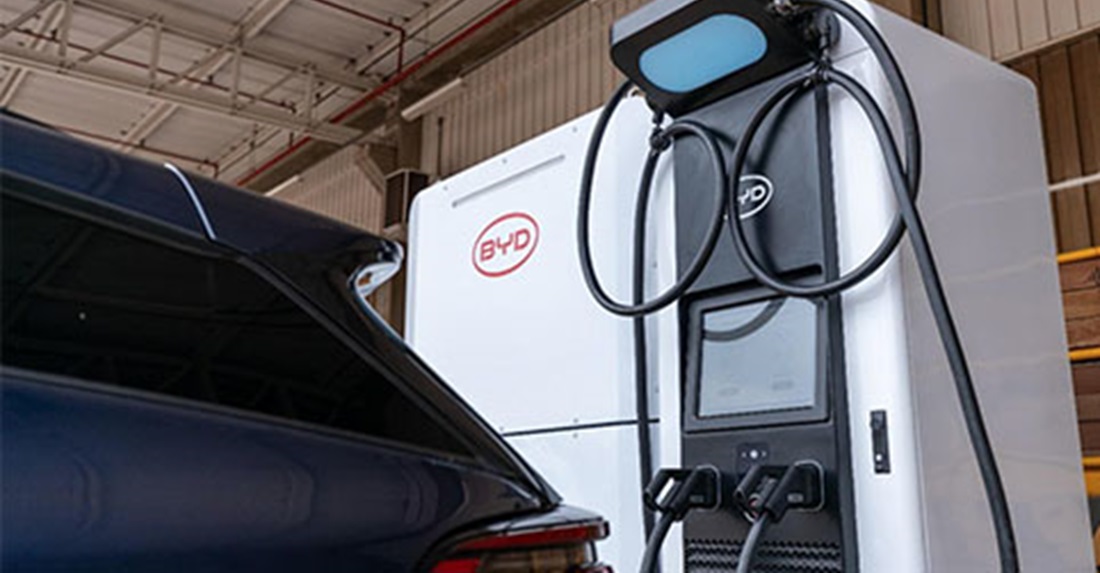
Chinese brands dodge tax with stock
Sep, 12, 2024 Posted by Sylvia SchandertWeek 202437
Since the government announced the gradual reinstatement of the Import Tax on electric and hybrid cars, the tax has been increased twice, in January and July. However, Chinese brands, which are the main importers of these vehicles, have not yet raised their prices. To avoid immediate price hikes, these companies prepared in advance by importing large volumes of vehicles, resulting in sufficient stock to maintain current prices for the time being.
ANFAVEA, the association representing manufacturers in Brazil, has expressed concerns over this situation. Last week, the association’s president, Márcio de Lima Leite, said that the inventory of Chinese electric and hybrid vehicles reached over 86,000 units in June, just before the second phase of the tax increase. According to him, this stockpile was enough to cover nine months of sales. By the end of August, the inventory was still over 81,000 units, Mr. Leite reported.
Since 2016, fully electric cars have been exempt from the Import Tax, and hybrids have been subject to a reduced rate. At the end of 2023, the government announced a phased reintroduction of these taxes. The first two stages of the increase occurred in January and July, bringing the rates to 18% for fully electric vehicles, 25% for hybrids, and 20% for plug-in hybrids. This gradual increase is scheduled to continue until it reaches the maximum rate of 35%, as permitted by the World Trade Organization (WTO), by July 2026.
Noting the strong competition from Chinese brands, ANFAVEA drew parallels with decisions made by other countries, such as the United States, which increased the Import Tax on Chinese goods from 25% to 100%. Consequently, ANFAVEA decided to petition the Ministry of Finance to immediately raise the Import Tax on electric vehicles to the maximum rate of 35%.
So far, the government has not commented on this request. Last week, Vice President Geraldo Alckmin sidestepped questions on the issue during an interview hosted by ANFAVEA.
The interview continued after the minister had left ANFAVEA’s headquarters in Brasília. The same reporter who had questioned him about the tax then posed a similar question to the association’s president. Mr. Leite said that the request to increase the tax to the maximum rate would now be directed to the Foreign Trade Chamber (CAMEX).
This situation has intensified the competition in the Brazilian market between domestic automakers and Chinese brands, which also plan to establish production facilities in Brazil but currently rely on imports. While ANFAVEA represents the domestic side, the Chinese brands are associated with the Brazilian Electric Vehicle Association (ABVE).
On the inventory data presented by ANFAVEA, ABVE President Ricardo Bastos said that the association did not have the exact numbers because its members “have more important things to do than count cars.”
However, Mr. Bastos did not dispute the information, estimating that the figures were likely accurate and considered it “natural” for companies to stockpile in anticipation of a tax increase.
The market for electric and hybrid vehicles continues to grow. With 14,600 units sold in August, including locally manufactured models like those from Toyota, sales volume represented a 57% increase compared to the same month last year.
Although the market share for hybrids and electric vehicles remains small compared to the overall market, it accounted for 6.6% last month. The growth rate remains robust.
The substantial inventories help these brands gain recognition in Brazil as they prepare to start local production. BYD plans to begin assembling vehicles later this year using imported parts in a factory being built in Camaçari, Bahia, at the former Ford site. Great Wall Motors (GWM) is preparing the facility it acquired from Mercedes-Benz in Iracemápolis, São Paulo, to commence operations in the first half of 2025.
Competition in the Brazilian vehicle market is expected to remain fierce, especially with increased credit availability driving demand.
In August, the daily average of new registrations reached 10,800 units, the highest of the year and a 19.5% increase over August 2023, according to ANFAVEA. Domestic sales totaled 237,400 units, including cars, light commercial vehicles, trucks, and buses, marking a 14.3% increase compared to the same month last year.
From January to August, the total market grew by 13.3%, totaling 1.62 million units. In the same period, sales of hybrids and electric vehicles reached 109,200 units, a 123% increase compared to the same period in 2023.
Source: Valor Internacional
-
Grains
May, 20, 2019
0
Escalating trade war boosts Brazil’s soybean sales
-
Ports and Terminals
Sep, 24, 2024
0
CMA CGM Atlas Service Makes Inaugural Call at Brazil’s Paranaguá Terminal
-
Environment
Jan, 27, 2022
0
Shipping emissions leapt 4.9% last year
-
Grains
Aug, 15, 2021
0
Paraná may restrict water grants to agriculture


